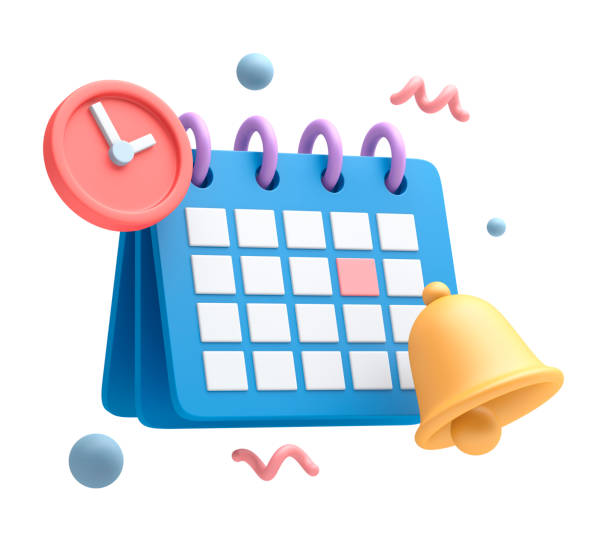Consistency is key to building a loyal podcast audience. One of the most effective ways to maintain regularity in your podcasting efforts is by creating a content calendar. This guide will walk you through the process of planning and maintaining a podcast schedule that ensures consistent content delivery and keeps your audience engaged.
1. Why a Content Calendar is Essential
A content calendar serves as a roadmap for your podcasting efforts. It helps you stay organized, plan ahead, and avoid last-minute stress. Here’s why it’s essential:
Benefits of a Content Calendar
- Consistency: Ensures you release episodes on a regular schedule, which is crucial for building and retaining an audience.
- Planning: Allows you to plan content around key dates, events, and seasons, making your podcast timely and relevant.
- Collaboration: Facilitates teamwork by providing a clear plan that everyone can follow, especially if you have co-hosts or a production team.
- Stress Reduction: Reduces last-minute scrambling by ensuring you have a clear plan for upcoming episodes.
2. Setting Goals for Your Podcast
Before creating a content calendar, define your podcasting goals. Understanding what you want to achieve will guide your planning process.
Types of Goals
- Content Goals: What type of content do you want to produce? (e.g., interviews, solo episodes, thematic series)
- Audience Goals: Who is your target audience, and what do they want to hear?
- Growth Goals: How do you plan to grow your audience? (e.g., increase downloads, improve engagement)
- Revenue Goals: Are you aiming to monetize your podcast? If so, how? (e.g., sponsorships, merchandise)
3. Mapping Out Your Episodes
Once your goals are clear, start mapping out your episodes. Begin with a broad overview and then drill down into specifics.
Broad Overview
- Frequency: Decide how often you’ll release episodes (e.g., weekly, bi-weekly, monthly).
- Themes: Identify overarching themes or series that will guide your content.
Specific Episode Planning
- Topics: List specific topics for each episode. Consider timely issues, audience interests, and your expertise.
- Guests: Identify potential guests and schedule interviews well in advance.
- Special Segments: Plan recurring segments or features that will appear in multiple episodes.
4. Creating the Content Calendar
With your episode plan in place, it’s time to create the content calendar. There are various tools you can use, from simple spreadsheets to dedicated project management software.
Structuring Your Calendar
- Dates and Deadlines: Assign specific dates for episode releases, recording sessions, editing, and promotion.
- Content Details: Include details like episode titles, topics, guest names, and key points to cover.
- Milestones: Set milestones for major projects or series within your podcast.
5. Maintaining Consistency
Creating a content calendar is only the first step. Maintaining consistency requires discipline and adaptability.
Sticking to the Schedule
- Buffer Episodes: Record a few episodes in advance to cover any unexpected delays or emergencies.
- Regular Reviews: Regularly review and update your content calendar to stay on track and make adjustments as needed.
- Accountability: If you have a team, hold regular check-ins to ensure everyone is on the same page.
Adapting to Changes
- Flexibility: Be prepared to adapt your schedule in response to new opportunities, audience feedback, or unforeseen challenges.
- Backup Plans: Have backup topics or episodes ready to go if something falls through.
6. Leveraging Your Content Calendar for Promotion
Your content calendar can also help streamline your promotional efforts:
Promotion Planning
- Social Media: Plan and schedule social media posts to promote each episode.
- Email Newsletters: Coordinate your email marketing efforts with your episode releases.
- Collaborations: Plan cross-promotions or guest appearances on other podcasts.
Engaging Your Audience
- Teasers: Use your calendar to plan and release teasers or previews of upcoming episodes.
- Feedback: Schedule time to solicit and review audience feedback to improve future episodes.
7. Reviewing and Refining Your Strategy
Periodically review your content calendar and overall strategy to ensure you’re meeting your goals:
Performance Metrics
- Analytics: Use podcast analytics to track performance and identify trends.
- Listener Feedback: Gather feedback from your audience to understand what’s working and what needs improvement.
Continuous Improvement
- Adjust Goals: Refine your goals based on your performance and audience feedback.
- Update Calendar: Make necessary adjustments to your content calendar to reflect your evolving strategy.
Conclusion
A well-planned content calendar is a powerful tool for maintaining consistency and achieving your podcasting goals. By setting clear objectives, mapping out your episodes, and regularly reviewing your strategy, you can create a podcast that engages and grows your audience.
Do you have tips or experiences with using a content calendar for your podcast? Share your insights with us on Instagram at @podcastsuck or on Facebook at facebook.com/Srusk. Your experiences can help fellow podcasters achieve consistency and success!
Happy podcast planning! 🎙️🗓️
Need help launching your podcast?
Schedule a Free Podcast Strategy Call TODAY!


Recent Comments